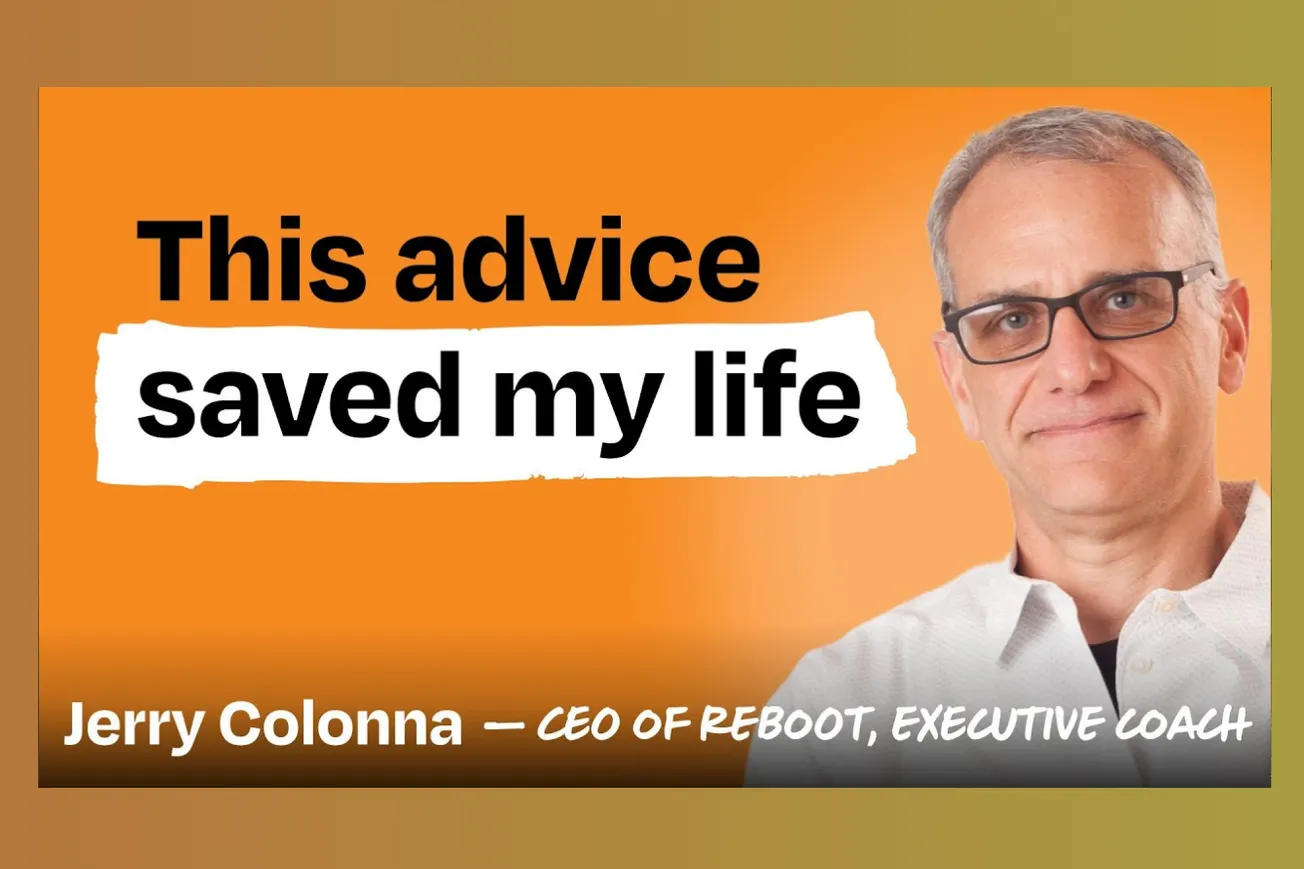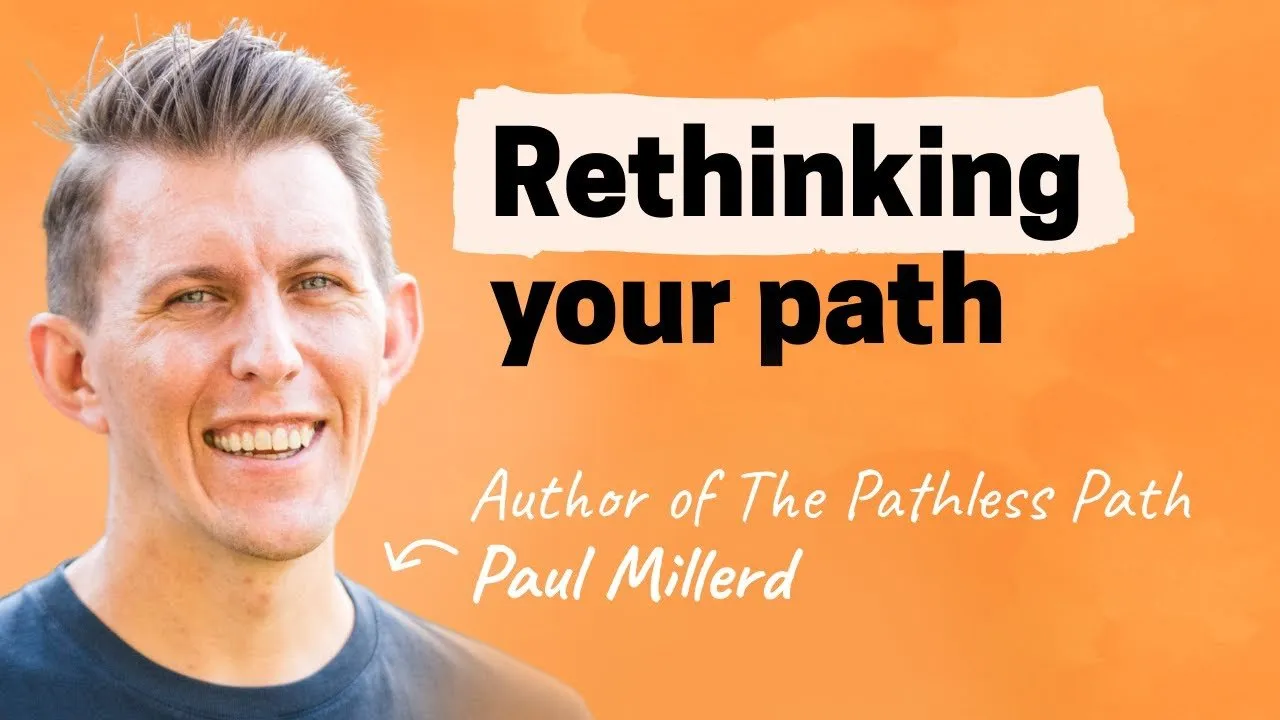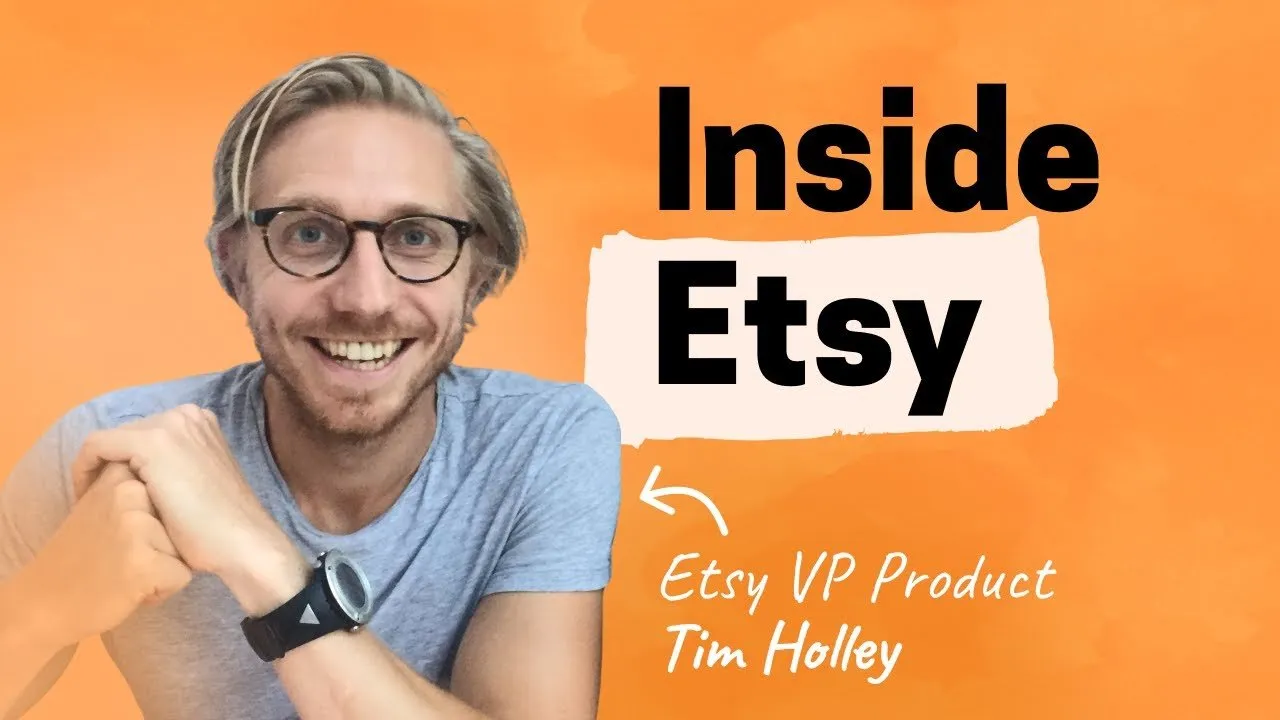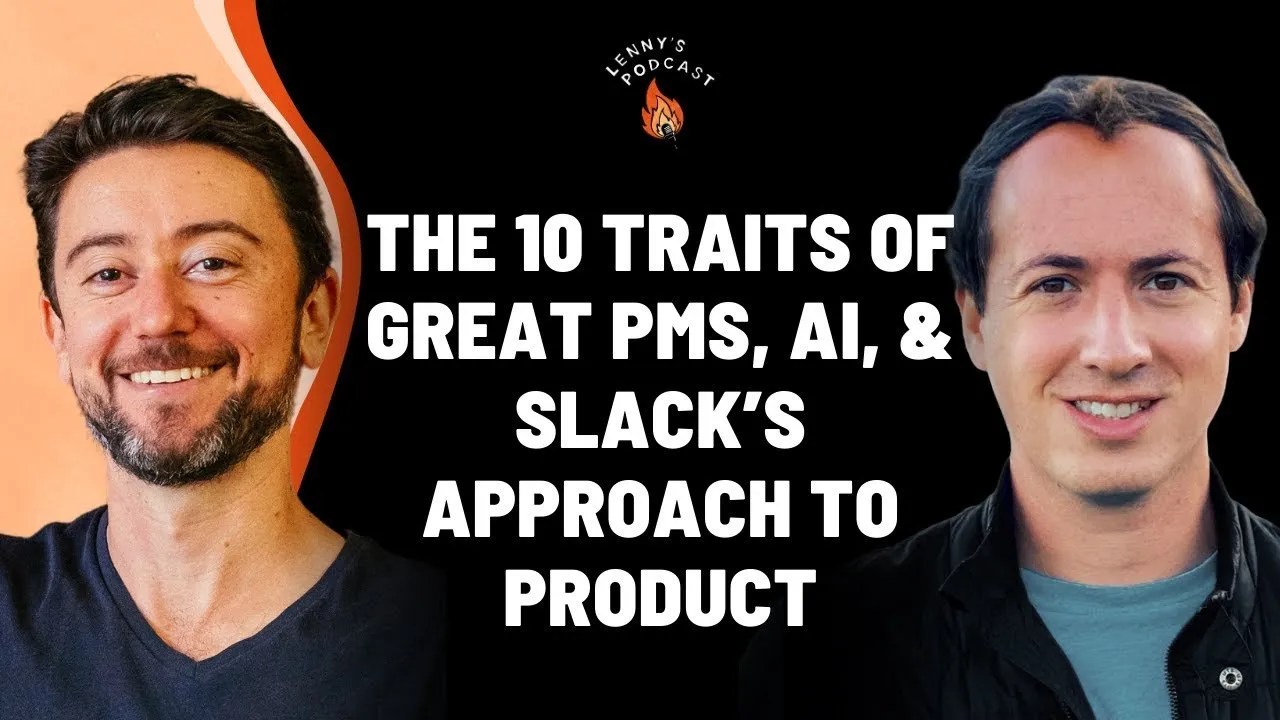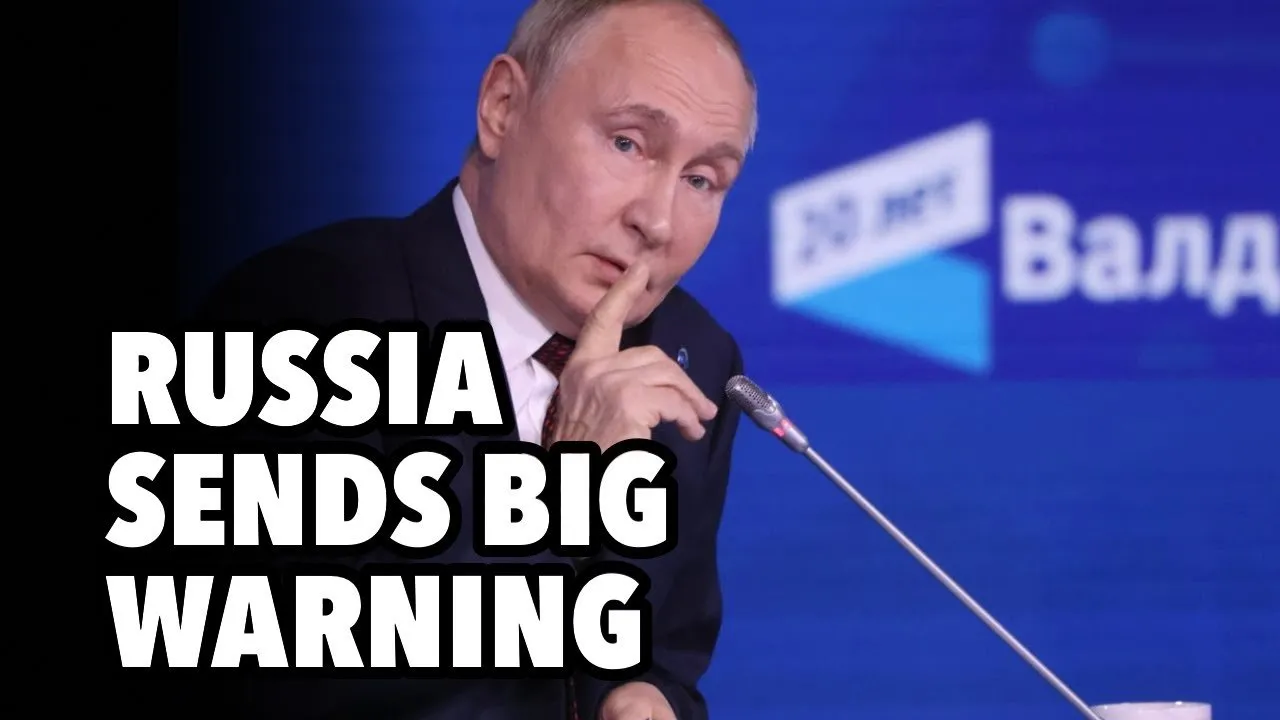Table of Contents
Executive coach Jerry Colonna reveals why most leadership failures stem from unconscious childhood patterns and how one powerful question can unlock authentic leadership transformation.
After 27 years coaching executives, Jerry Colonna has discovered that the biggest leadership problems rarely involve lack of skills—they stem from unexamined internal patterns.
Key Takeaways
- The complicity question "How have I been complicit in creating the conditions I say I don't want?" reveals unconscious patterns sabotaging leadership effectiveness
- Leadership success requires three elements: practical skills + radical self-inquiry + shared experiences = enhanced leadership and greater resilience
- Teams most often fail due to leaders' unresolved childhood patterns, not lack of talent, strategy, or execution capabilities
- Busyness frequently masks deeper self-worth issues and attachment to external validation rather than genuine productivity or purpose
- "Growth mindset" becomes problematic when held as rigid doctrine rather than flexible approach to learning and adaptation
- Legacy thinking shifts focus from ego-driven achievement to meaningful contribution and service to future generations
- AI tools can enhance self-inquiry by identifying blind spots and patterns humans struggle to see objectively
- Unconditional self-worth independent of achievements creates more sustainable motivation than anxiety-driven performance
- Shared experiences in trusted communities provide essential healing and growth opportunities that individual work cannot replicate
Timeline Overview
- (04:12) Jerry's key question — The complicity question as a tool for revealing unconscious patterns and reclaiming personal agency
- (06:55) The equation for great leadership — Practical skills + radical self-inquiry + shared experiences = enhanced leadership and resilience
- (09:37) The big lie of success and happiness — Why external achievements don't create fulfillment and the socialization around material success
- (12:12) The consciousness hack — How radical self-inquiry questions challenge learned behaviors and increase self-awareness
- (15:56) Getting over the fear of consequences — Addressing anxiety about what happens when we examine difficult truths about our lives
- (20:23) The problem with bypassing our childhood baggage — Bruce Springsteen's wisdom about unsorted baggage and the inevitable price of avoidance
- (23:22) Radical self-inquiry: asking the tough questions — Specific questions for journaling and self-examination that reveal hidden patterns
- (27:05) Shared experiences: the power of community — Why authentic relationships and truth-telling in groups accelerates personal growth
- (30:25) The trap of busyness and attachment — How growth trajectory addiction masks deeper self-worth issues and creates suffering
- (40:45) Understanding our own intentions — Distinguishing between ego-driven and purpose-driven motivations for achievement and success
- (46:58) Legacy and purpose — Thinking about what we want future generations to say about our contribution and character
- (55:43) Writing for self-discovery — Using writing as a tool for answering personal questions and crystallizing thinking
- (57:12) The impact of AI on humanity — How artificial intelligence might elevate human connection while automating routine tasks
- (01:04:56) Turning a growth mindset into a fixed mindset — The ego's trap of making growth mindset itself a rigid doctrine
- (01:11:28) The role of radical self-inquiry in leadership — Why team dysfunction stems from leaders' unconscious patterns rather than skill gaps
- (01:19:24) Final thoughts and reflections — Creating connection and reducing isolation through authentic conversation and shared humanity
The Complicity Question: A Gateway to Authentic Leadership
Jerry Colonna's most powerful coaching tool begins with a deceptively simple question: "How have I been complicit in creating the conditions I say I don't want?" This question cuts through self-delusion and victim narratives to reveal hidden patterns that sabotage leadership effectiveness.
The word "complicit" is carefully chosen. "Complicit does not mean responsible," Colonna emphasizes. "Think of the word accomplice. You are driving the getaway car. You're not sticking up the bank teller." This distinction prevents self-blame while acknowledging personal agency in creating unwanted circumstances.
The question's power lies in exposing unconscious self-sabotage. A leader might claim they don't want to feel constantly busy, yet feel "really unnerved and disconcerted" when their agenda isn't packed. The busyness serves an unconscious function—perhaps providing validation, avoiding difficult decisions, or maintaining a sense of importance that masks deeper insecurities.
This inquiry reveals how individuals often perpetuate the very conditions they consciously reject. The executive who complains about micromanaging employees might unconsciously hire people who seek constant direction. The founder frustrated by team indecision might explode with fury whenever team members make choices they disagree with, training everyone to defer all decisions upward.
The question's therapeutic power stems from restoring agency. Rather than feeling victimized by circumstances, individuals recognize their role in creating current realities. This recognition, while sometimes uncomfortable, empowers change. If someone contributed to creating unwanted conditions, they possess the ability to create different ones.
Colonna's approach differs from traditional executive coaching by addressing root causes rather than symptoms. Most leadership development focuses on skill acquisition—better communication techniques, strategic planning frameworks, or time management systems. While these practical skills matter, they prove insufficient when unconscious patterns continue driving behavior.
The complicity question works because it bypasses ego defenses that typically resist change. Instead of external blame or learned helplessness, it invites curiosity about personal patterns. This curiosity becomes the foundation for sustainable behavioral change and authentic leadership development.
The Leadership Equation: Beyond Skills Training
Colonna's leadership development formula emerged spontaneously during a university presentation, crystallizing decades of coaching insights into a simple equation: practical skills + radical self-inquiry + shared experiences = enhanced leadership + greater resilience.
The equation's power lies in its integration of typically separate development approaches. Most professional development programs focus exclusively on practical skills—the "how" of leadership execution. These programs teach communication techniques, strategic frameworks, and operational methodologies that leaders can immediately apply to their work.
Radical self-inquiry represents the equation's revolutionary component. This involves examining unconscious patterns, childhood conditioning, and deep motivations that drive behavior. Questions like "What am I not saying that I need to say?" or "Tell me about your relationship to money" seem unrelated to quarterly planning or team management, yet they address the emotional and psychological foundations of leadership behavior.
Shared experiences complete the triangle by providing safe spaces for authentic vulnerability and truth-telling. "Imagine sitting in a circle of people who just have your back, who really care about you as a person," Colonna describes. These experiences counteract the entrepreneurial community's tendency toward constant performance and image management.
The equation's output includes enhanced leadership capability, but Colonna emphasizes that greater resilience represents the primary goal. "What I really care about is you not killing yourself in the process," he explains, referencing his own experience with depression despite outward success. The equation aims to create leaders who can navigate challenges without destroying their mental health or relationships.
This integrated approach addresses leadership development holistically. Practical skills provide tools for execution. Radical self-inquiry eliminates unconscious sabotage patterns. Shared experiences offer support and accountability. Together, these elements create sustainable transformation rather than temporary behavioral changes.
The equation challenges traditional corporate development paradigms that treat leadership as purely rational and skill-based. By acknowledging the emotional, psychological, and relational dimensions of leadership, it offers a more complete approach to developing authentic, effective leaders who can sustain high performance without sacrificing their humanity.
Why Teams Really Fail: The Unconscious Patterns Theory
Colonna's most counterintuitive insight about team dysfunction challenges conventional wisdom about organizational failure. "It's rarely lack of talent on the team, lack of strategy, lack of execution," he explains. Instead, team failures typically stem from "the unresolved demons from their childhood" and "unsorted baggage" that leaders bring to group dynamics.
This perspective reframes team challenges as psychological rather than technical problems. Groups unconsciously recreate familiar patterns from members' families of origin. The executive who grew up in a family where painful topics were deflected with humor will unconsciously perpetuate this pattern, causing teams to avoid difficult conversations through inappropriate levity.
Colonna illustrates this with a client story: "Every time we get close to talking about something that's really painful, somebody makes a joke and all the energy disappears." When confronted with this observation, the CEO immediately recognized the pattern: "Jesus Christ, that's just like my family." The team was unconsciously recreating childhood dynamics that prevented authentic problem-solving.
Carl Jung's insight applies directly to organizational dynamics: "Until you make the unconscious conscious, it will direct your life and you will call it fate." Teams blame external factors—market conditions, competitive pressures, resource constraints—for problems that actually stem from unconscious psychological patterns operating within the group.
The solution requires leaders to examine their own unconscious patterns first. "If you want to create a high functioning team, do your work and it starts with the person who has the most power," Colonna emphasizes. Leaders set emotional and psychological tone for entire organizations through their unexamined patterns.
This creates a moral imperative for leadership self-examination. "The more power you have, the more moral responsibility you have to pause and figure out what it is that you're doing to be complicit in creating the conditions you say you don't want." Leaders who refuse this work condemn their teams to repeat dysfunctional patterns.
The theory explains why technically competent teams often underperform while less skilled groups excel. Psychological safety, authentic communication, and healthy conflict resolution matter more than individual capabilities or strategic frameworks. Teams with conscious, self-aware leaders can navigate challenges effectively, while teams led by unconscious patterns struggle despite superior resources.
This insight transforms how organizations approach performance improvement. Instead of focusing solely on skills training, strategy refinement, or process optimization, effective team development must address the psychological and emotional dynamics that drive group behavior.
The Busyness Trap: Achievement, Attachment, and Self-Worth
Colonna uses his conversation with Lenny Rachitsky to illustrate how busyness often masks deeper self-worth issues and attachment to external validation. The analysis reveals how success can paradoxically increase anxiety and suffering when driven by unconscious needs for validation rather than genuine purpose.
Lenny's experience exemplifies this pattern. Starting with no expectations, his newsletter succeeded organically through authentic value creation. "It was just 'this is cool. People seem to like it. I enjoy it. Let's just see where it goes,'" he recalls. The absence of attachment to outcomes allowed natural creativity and authentic connection with his audience.
Success changed everything. Financial dependence on the newsletter raised stakes dramatically. "Then all of a sudden, my heart—the anxiety like—there's a bit of just, oh wow, I can't let it fall apart because my life would fall apart if I let it fall apart." The shift from intrinsic to extrinsic motivation created suffering around the very activity that originally provided joy.
Colonna identifies the deeper pattern: "Really the deeper attachment is 'see I'm not nothing. See I'm not a nobody. I'm a somebody.'" The newsletter's success became proof of personal worth rather than simply enjoyable work. This attachment transforms creative expression into psychological survival strategy, inevitably creating anxiety and suffering.
The Buddhist framework provides clarity: "When we become attached to the outcome, we inadvertently fuel our own suffering." Attachment doesn't mean caring about quality or impact—it means deriving self-worth from external results. "That which we do to push away suffering will increase suffering."
This pattern explains why many successful people experience depression, anxiety, and burnout despite achieving their stated goals. External achievements cannot resolve internal questions about worth, belonging, and safety. Attempting to use success to answer these questions creates additional pressure and anxiety that undermines both performance and well-being.
The solution involves distinguishing between intrinsic satisfaction and external validation. "What if you could enjoy the puzzle of trying to create something new, but it doesn't matter to your sense of self-esteem if you succeed or fail?" This approach allows engagement with challenging work without psychological dependency on outcomes.
Colonna's personal example illustrates this distinction. He writes to answer questions that matter to him, whether or not the work becomes commercially successful. "I have to do this work regardless" of external recognition or financial return. This intrinsic motivation creates sustainable engagement without attachment-driven suffering.
The Growth Mindset Paradox: When Flexibility Becomes Rigid
Colonna's critique of growth mindset reveals how even beneficial concepts can become sources of suffering when held too rigidly. His insight illustrates a fundamental principle about psychological and spiritual development: any fixed position, even apparently positive ones, can create attachment and limitation.
The problem isn't with growth mindset itself, but with how the ego co-opts useful concepts. "Having a growth mindset is a very helpful thing. What I have a problem with is how we can turn a notion like a growth mindset into a fixed mindset," Colonna explains. The ego creates categories of "good" and "bad" approaches, then clings to the "correct" way of thinking.
This dynamic reflects a deeper psychological pattern. The ego seeks certainty and control, even within growth-oriented frameworks. "The minute you start to nail it down to the floor and say, 'This is the way it ought to be. I ought to always have a growth mindset,' you've become fixed." The flexibility inherent in growth mindset gets replaced by rigid adherence to growth mindset doctrine.
Buddhism teaches that "everything's falling apart all the time," including our conceptual frameworks and mental models. Healthy psychological development requires holding all concepts lightly, including beneficial ones like growth mindset. "When we get too fixed on the proper way to do things, we're setting ourselves up for attachment and therefore suffering."
The business context provides a practical example. Peter Senge observes that "it is virtually impossible to challenge the assumptions that made you rich in the first place." Early business success creates ego attachment to specific methods or strategies. When circumstances change, leaders struggle to adapt because their identity becomes tied to particular approaches.
The solution involves what Zen Buddhism calls "beginner's mind"—maintaining openness to changing circumstances regardless of past success. "All things are possible" when the mind isn't fixed on previous experiences or rigid frameworks. This allows authentic responsiveness to current reality rather than defensive protection of past approaches.
Colonna's advice synthesizes this wisdom: "Stay attached to the growth and hold mindset a little loosely." The commitment to development and learning remains strong, but specific methods and frameworks stay flexible. This prevents the ego from turning beneficial concepts into limiting beliefs.
This principle applies beyond growth mindset to any psychological or spiritual framework. Attachment to being "mindful," "authentic," "data-driven," or any other positive quality can create suffering when held rigidly. True growth requires holding all concepts—even helpful ones—with appropriate lightness.
Legacy as Compass: Beyond Ego-Driven Achievement
Colonna's exploration of legacy thinking reveals how shifting from ego-driven achievement to meaningful contribution can transform both motivation and fulfillment. His framework helps leaders move beyond external validation toward purpose-driven action that creates lasting positive impact.
The legacy question emerges from deep personal reflection: "What kind of ancestor to my descendants would I like to be?" This framing extends beyond immediate family to include broader impact on future generations. The question assumes responsibility for leaving the world better than we found it, regardless of personal recognition or reward.
Colonna's personal legacy vision illustrates this principle: "What I want people to say about me is that he gave a shit about the world. He cared and he tried and he was kind." These qualities focus on character and contribution rather than achievements or accomplishments. They represent ways of being rather than external results.
This approach contrasts sharply with ego-driven legacy concerns about fame, wealth, or historical recognition. The ego seeks immortality through external monuments to personal greatness. Purpose-driven legacy focuses on positive impact and service, accepting mortality while contributing meaningfully to ongoing human flourishing.
The tree metaphor from Colonna's book illustrates healthy legacy thinking. Observing a fallen oak, he reflects: "Here lies a good man" who lived "with its limbs gnarled and twisted by actions that it should have taken and actions that it shouldn't have taken, but for the majority of its 75-80 years, it lived into its purpose of providing shelter and shade for those that may have come beneath it."
This perspective acknowledges imperfection while emphasizing overall contribution. The tree wasn't perfect—it had "gnarled and twisted" limbs from good and bad choices. But its primary purpose involved serving others through shelter and shade. At life's end, it "slowly dissolves into the earth, having done the best job it could of being purposeful."
Legacy thinking provides practical guidance for current decisions. "With my children being fully-fledged adults, I am really focused on what kind of ancestor to my descendants would I like to be." This future orientation helps evaluate present choices based on long-term impact rather than immediate gratification or external pressure.
The framework also addresses current global challenges. Colonna feels moral responsibility to use his communication gifts "to help create the world that I would like to see. A world of kindness and empathy. A world where poverty is diminished, a world where people feel safe however they identify." Legacy thinking motivates engagement with difficult social and political issues.
AI and the Future of Human Development
Colonna's perspective on artificial intelligence reveals both opportunities and challenges for human development and leadership in an AI-enhanced world. His insights suggest that AI might ultimately elevate uniquely human capabilities while automating routine cognitive tasks.
The comparison to previous technological transitions provides context. Colonna remembers when "not everything had an IP address" and when connecting to the web required manually installing IP stacks. Initially, he viewed AI as similar to previous technological adoption cycles. "A year ago, I thought we were going through a similar kind of transition. We're clearly not. This is different."
AI's impact on coaching and therapy illustrates both threat and opportunity. "Everybody's like 'oh my god, GPT is going to replace me,'" Colonna notes about his field. However, early experimentation suggests AI enhances rather than replaces human capabilities. A colleague uploaded ten years of journal entries to Claude and used it to identify patterns and answer self-inquiry questions, becoming "a better coach" through AI assistance.
The glasses metaphor captures AI's potential positive impact: "It's like I have put on a pair of glasses that are really, really sharp and helpful." AI tools can reveal blind spots and patterns that humans struggle to see independently. "What it might do, which I think would be wonderful, is it might give you more questions to ask yourself."
Colonna envisions AI eliminating routine cognitive work while elevating essential human capabilities. "What I am hopeful about is that that which does not matter in the experience of being human kind of gets burned away and is taken care of by AI. But that which matters—which is presence and connection, human-to-human contact, strategic thinking, formulation—that gets elevated."
This perspective suggests AI could reduce time spent on administrative tasks and information processing while creating more space for relationship building, creative problem-solving, and emotional intelligence development. "We spend more time on that which matters and less time on that which doesn't matter."
The optimistic scenario depends on conscious choice about AI integration. If humans use AI to enhance uniquely human capabilities like empathy, creativity, and wisdom, technology could support human flourishing. If AI becomes a substitute for human development and connection, it might diminish essential qualities that make life meaningful.
Colonna's own AI usage illustrates healthy integration. He uses ChatGPT as "a writing and thinking partner" while maintaining relationships with "live real human writing buddies." The AI enhances his thinking process without replacing human connection and collaboration.
The uncertainty about AI's ultimate impact requires ongoing attention and conscious choice. "It is unsettling. It's uncanny and it's also enlivening and exciting." The technology's rapid development demands continuous evaluation of how it affects human development, relationships, and meaning-making.
Practical Implementation: Making Radical Self-Inquiry Actionable
Colonna provides specific tools and approaches for implementing radical self-inquiry in daily life, making abstract concepts accessible to leaders seeking practical transformation. His methodology combines journaling, questioning techniques, and community engagement to create sustainable development practices.
The foundational questions serve as entry points for deeper self-examination:
- "How have I been complicit in creating the conditions I say I don't want?"
- "What am I not saying that I need to say?"
- "What am I saying that's not being heard?"
- "What's being said that I'm not hearing?"
These questions work because they challenge comfortable narratives and defensive patterns. "You know you're in the radical self-inquiry zone when the questions take your breath away," Colonna explains. Effective questions create mild anxiety or discomfort because they penetrate ego defenses and reveal hidden patterns.
The journaling process requires moving beyond surface-level recording to deep inquiry. Rather than documenting daily events, radical self-inquiry journaling explores motivations, patterns, and unconscious drivers. The questions should feel slightly dangerous or uncomfortable—"questions that may cause us to be a little afraid of the answer."
Privacy protects the process from ego interference. "You don't have to share the answers to these questions with anybody but yourself," Colonna emphasizes. External sharing can trigger performance and image management that defeats the purpose of honest self-examination. The primary relationship is with oneself and one's own truth.
However, shared experiences in trusted communities accelerate growth beyond individual work. "There could be some power in sharing them in a group of friends and sharing them with a group of colleagues, sharing them with a coach, sharing them with a therapist." The key involves finding relationships that provide safety without judgment or fixing.
The Buddhist framework provides context for understanding why this work matters. "Self-delusion along with attachment are the biggest contributors to our own suffering." Radical self-inquiry directly addresses self-delusion by challenging comfortable narratives and revealing hidden patterns. "Everything's great. How you doing? Everything's great. Can we just not bullshit each other?"
Consistency matters more than intensity. Daily attention to these questions, even briefly, creates more sustainable transformation than occasional deep dives. The practice becomes a way of living rather than a special activity. "The art of growing up is a practice. It's not a scientific moment where one day you wake up and you're done."
The approach requires courage and compassion. Uncovering unconscious patterns often reveals behavior that contradicts self-image or values. Self-compassion becomes essential for continuing the work without falling into self-judgment or paralysis. The goal is awareness and growth, not perfection or punishment.
Common Questions
Q: How do I know if I'm really being honest with myself during self-inquiry?
A: Look for questions that "take your breath away" or make you slightly afraid of the answer. If everything feels comfortable, you're probably staying in safe territory rather than examining difficult patterns.
Q: What if radical self-inquiry reveals things about my life that I need to change dramatically?
A: That's the point—and yes, it might lead to major changes. The alternative is continuing unconscious patterns that create suffering. The fear of change often keeps us stuck in situations that aren't working.
Q: How can I practice this if I don't have access to coaching or therapy?
A: Start with journaling using the four foundational questions. Create trusted relationships where authentic sharing is possible. Read books like "Reboot" that provide structured inquiry frameworks.
Q: Why focus on childhood patterns when I'm dealing with current business challenges?
A: Current patterns often stem from unconscious childhood adaptations. Understanding these roots helps address symptoms at their source rather than just managing surface-level behaviors that keep recurring.
Q: How do I balance self-inquiry with getting work done?
A: Self-inquiry improves work effectiveness by eliminating unconscious sabotage patterns. A few minutes of daily questioning can prevent hours of dysfunction and repeated mistakes.
Synthesis: The Path to Conscious Leadership
Jerry Colonna's approach to leadership development represents a fundamental shift from skills-based training to consciousness-based transformation. His methodology recognizes that sustainable leadership effectiveness requires addressing the psychological and emotional foundations that drive behavior, not just acquiring new techniques or frameworks.
The Consciousness Revolution in Leadership
Traditional leadership development treats executives as rational actors who need better tools and strategies. Colonna's approach recognizes that unconscious patterns from childhood often drive adult behavior, creating predictable dysfunction regardless of intelligence or skill level. The complicity question serves as a gateway to this deeper level of self-awareness.
This consciousness-based approach explains why technically competent leaders often struggle with team dynamics, decision-making, and sustainable performance. Skills training addresses symptoms while unconscious patterns continue creating the same problems in new forms. Real transformation requires examining and changing these underlying patterns.
The three-part equation—practical skills + radical self-inquiry + shared experiences—integrates multiple development approaches that are often treated separately. This holistic framework recognizes that humans are complex beings whose professional effectiveness depends on psychological health, emotional intelligence, and authentic relationships.
The Buddhist Business Case
Colonna's integration of Buddhist principles into leadership development offers practical tools for reducing suffering while increasing effectiveness. Concepts like attachment, self-delusion, and impermanence provide frameworks for understanding why conventional success strategies often create anxiety and burnout.
The attachment analysis explains why many successful people experience increased anxiety as stakes rise. External achievements cannot resolve internal questions about worth and belonging. Using success to prove personal value creates psychological dependency that undermines both performance and well-being.
Buddhist principles also offer solutions. Holding goals lightly while working diligently allows engagement without attachment to outcomes. Finding intrinsic satisfaction in meaningful work creates sustainable motivation that doesn't depend on external validation. These approaches support both high performance and psychological health.

